Metkel Tewelde: A Humble Icon
Photo courtesy of Metkel Tewelde
Senior Metkel Tewelde poses for a photo in the Colorado Mountains.
Recently, I had the opportunity to sit down and chat with Boulder High senior Metkel Tewelde. Many know and admire Metkel, as his bright, radiant personality draws everyone near him. You may see Metkel as a manager and stats keeper for the boys varsity basketball team, or looking fresh with his fit in the hallways. However, Metkel’s incredible story of how he got to where he is today is only known to few.
Metkel was born in Eritrea, which is a small country north of Ethiopia on the eastern coast of Africa. When Metkel was nine years old, his father moved to the United States in order to provide for Metkel’s family, as opportunities were scarce in his home nation with dictator president Isaias Afwerki stripping citizens of their money and rights. Though Metkel’s father had moved to the United States and had been making money for his family for about three years, he remained frustrated with the conditions his family were enduring under the Eritrean dictatorship. It was decided that Metkel, his mother and his four siblings would flee the country.
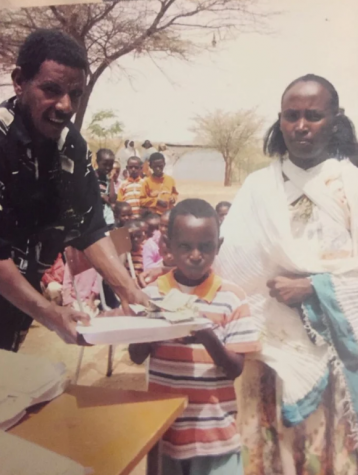
The Eritrean dictatorship prohibits any emigration from the country, so Metkel and his family would have to escape without being caught by the soldiers that guarded the borders. Like many others who had fled, Metkel’s family decided to try going south to Ethiopia where they could seek refuge. As a whole family, they attempted twice to cross the border, but were caught both times with Metkel’s mother put in prison until Metkel’s father could pay to get her out. Just Metkel and his older brother went for a third time, but were caught once more. They were put in handcuffs and placed out in the blazing Eritrean sun for hours before being put in jail for a month. “I was 12 doing all this, just scared every time. I would literally cry sometimes,” said Metkel.
Metkel’s family knew that going in groups was not going as planned, so they decided that each family member would make the journey alone. Metkel’s oldest brother went first, and successfully made it into Ethiopia. As Metkel was the next oldest, he would be the next one to go. “It was really far, about a couple hours of literally running, just running for my life.” After his endless sprint, Metkel crossed the river that separates Eritrea and Ethiopia, and found himself free of the suffering he had experienced in Eritrea. “I was frightened, I was scared, but when I crossed over I gained more confidence and became more of a man.”
After making it across the border, Metkel was brought to a camp for Eritrean refugees. For about three months, Metkel was stuck at the camp until he was able to go to Addis Ababa – the capital of Ethiopia – and begin the process of obtaining a visa to come to the United States. Metkel was reunited with his older brother in Addis Ababa. After applying for visas, the waiting game began for Metkel and his brother.
A year later, having recently reconvened with his mother and the rest of his siblings, Metkel received the letter saying that he could come to the United States. Metkel was delighted to hear the news, but simultaneously felt poorly as he would have to leave his family once again. With mixed emotions, Metkel departed Ethiopia in February 2015 and flew to the United States.
Metkel’s father picked Metkel up at DIA after a long travel expedition. “After coming [to the US], seeing my dad for the first time in nearly five years, it was so weird. I was nine years old when he left to provide for us, and seeing him, I would never cry on occasions like this, but that time I cried. I was just really emotional,” said Metkel.
One might think that Metkel had surpassed the difficulties he would have to face after coming to the US, but the change in continent only provided new challenges. Metkel did not speak a word of English, making his early day-to-day life extremely difficult. Fortunately, many of Metkel’s cousins who live in Thornton helped him to learn the language, along with an ELD class he took in his one and only semester at Casey Middle School. Metkel also joined the “I Have A Dream Foundation,” where he found additional assistance and amazing friends.
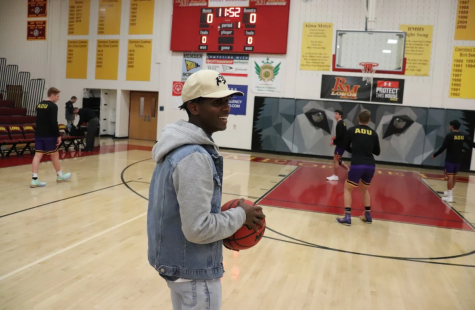
Metkel’s first day of high school came quickly. Though he could now put together sentences in English and felt more comfortable in his new environment, Metkel still encountered academic difficulties at Boulder High. Instead of feeling despair towards his situation, Metkel worked hard to push through the barriers that blocked his success. “I was determined because I came here for a better education and a better life,” said Metkel. Now, Metkel is an excellent student and speaks English better than many who have been speaking it for far longer.
While Metkel’s achievements are largely due to his own hard work, he has also had the help of Bill Barclay, a mentor that he connected with through Dreamers. Barclay has helped Metkel continue his progress in school and in life, and has been a role model that Metkel looks up to. Barclay and Metkel have also made a “bond that will never be broken.”
Today, Metkel looks forward to his upcoming graduation from Boulder High and subsequent freshman year at CU. Metkel is interested in engineering, which is what he plans to pursue in a college education. As a profession, Metkel hopes to be an entrepreneur that helps those in need, as well as involved in sports as a coach of a basketball team or running team. Whatever Metkel decides to do, I am certain that the determination and desire he has will only lead to success.
Elijah: Where are you originally from?
Metkel: I’m from Eritrea. It’s a small country right next to Ethiopia, and it’s in East Africa.
Elijah: How was your life there growing up?
Metkel: I was born there, and raised there until I was 12. Around age 12, my dad had been here in the US for around five years. He sent money back to Eritrea for us. We had a dictator who took away our money, our rights and everything. My dad didn’t like that, so instead of just sending money back to feed us, he just decided we should leave the country. So as a whole family, I have four other siblings and my mom, he decided we would all leave the country and go to Ethiopia so we could get our papers and come to the US. Eritrea doesn’t allow people to leave the country, so we had to cross the border to Ethiopia. But that didn’t work out. We tried as a whole family the first time we went. We got caught at the border by Eritrean soldiers that keep people from leaving the country. After that, we were pretty scared. We didn’t want to do it again. They took my mom to jail for a month, and my dad had to pay to get her out. We tried again, but this time before we started traveling we got caught by the police. They took my mom again for a while. As a third try, my parents thought, “okay this isn’t working as a family, so let’s try something else.” Just my older brother and I went again, and then WE got caught. It just didn’t work out. We got put in jail for about a month, and then my dad again had to pay for all that just to get me out. They kept my brother for about two more months moving. I was 12 doing all this, just scared every time. I would literally cry sometimes. When they handcuffed us and they put us in the sun, you know its always like 100 degrees. Always. No snow, nothing. It barely even rains sometimes. So they handcuffed us and put us in the sun for hours straight. It was just me and my brother there. After that, I was pretty scared, but my dad didn’t want to give up. He decided my older brother would go by himself. He did and he made it over to Ethiopia so my parents thought, “Hmm. Alright. Let’s try Metkel by himself.” I was just too scared. It was really far, about a couple hours of literally running, just running for my life. I crossed over the river that separates Eritrea and Ethiopia. If you cross over the Eritrean soldiers can’t shoot at you, they can’t do anything. You’re not one of them anymore. I crossed over and looked back and thought, “Damn. I just did that.” To me, I was frightened, I was scared, but when I crossed over I gained more confidence and became more of a man I guess. I was a little kid, but that gave me more confidence. Some Ethiopian soldiers found me and took me in. They took me to this big camp where there were a bunch of Eritreans who crossed the border. A lot of these people had no papers, they have nothing. They’re just there because they don’t want to be in Eritrea anymore. I was there, I had a purpose, I had papers to get done. My dad had this whole plan where I’d come in, do my papers, and then however long it took to stay in Ethiopia didn’t matter, then I’d come here. He set up this lady to help me get my papers. I was at the camp for about three months. After that came my first plane ride to the Ethiopian capital. I went there and met my brother, we were reunited again. It was an emotional time. We missed both my dad and my mom and the rest of my siblings back in Eritrea. We were stuck waiting for them. My brother and I still did our papers. We got that done, and then we just waited for our chance to come to the US. We’d go to this place where we’d have to do meetings, there’s a bunch of questions being asked just so they can make a visa for us. About a year later in 2015, I got a letter that said that I had gotten my papers and that I could leave Ethiopia. I didn’t want to tell my brother because he crossed the border before me. I got lucky enough and finished everything before him. He didn’t want to be separated. The rest of my family had crossed the border by that time. We’ve always been together, and I got it before him even though he was there before me. That made me sad. He should’ve gotten it first. I left on February 13th, 2015 –
Elijah: Got here in time for Valentine’s Day!
Metkel: Haha yeah. That was another long plane ride. I landed in Newark and stayed the night there. The next day I left for Denver. My dad called me and told me how to say stuff because I had no clue what to say. All I knew how to say was “My name is Metkel.” He told me all these simple things that I’d need to know, which helped me get around effortlessly and confidently. After coming here, seeing my dad for the first time in five years, it was so weird. I was nine years old when he left to provide for us, and seeing him, I would never cry on occasions like this, but that time I cried. I was just really emotional.
My dad used to live with my cousins in Thornton, so we went there. Me coming in and not speaking English, I learned the language from them. They were all younger than me. They taught me how to talk, so now here I am. When I first got here, I went to Casey for eighth grade, and I was just there. I didn’t speak the language, but I had this ELD class that helped me get better at the language. After taking that class I started to put sentences together and have conversations. Then high school, they said I was gonna go to high school and I was like, “What’s high school?” I had no idea what it was. Freshman year I spoke the language a bit better. I just kept getting better. I took classes on the same level as people that were born here and went to school here, it was hard to keep up. But I was determined, because I was here for an education and a better life. I didn’t want to let my dad or anyone else down, so I just did my best to keep up and here I am, trying to be on the same level as everyone else.
Elijah: Well I can certainly say your English is better than a lot of people I know who have been speaking it for far longer, so –
Metkel: Thank you!
Elijah: One thing I did want to ask you, so you didn’t have any communication with your mom or your siblings after escaping? How long was it before you got to see them?
Metkel: We did get to talk to them from time to time, maybe once in two months. We got to tell them how we were doing. Every time we called them it was an emotional call, just missing them. With my mom on my side, I can literally do anything. Both my parents motivate me alot. Having them around is just great. When they’re not around I feel kind of down, you feel like you’re missing a big part of your life. So, after about six months they also came, and that was the greatest news of my life. My youngest brother was five. It was hard for my mom to have him on her back and still cross the border, and also have a seven year-old and a ten year-old with her. I know it was hard for her, but I was really proud of her for doing that, and also really proud of my dad for taking all these risks, and us taking these risks. It worked out for us, so that’s cool.
We came to Boulder and we got our own apartment, and started going to school here.
Elijah: So if your cousins were living in Thornton, why Boulder?
Metkel: My dad worked at the St. Julien and he also wanted me to go to Casey. He liked Boulder. All our other family lives in Denver, and my dad thought there wasn’t as much opportunity there. We wanted to do our own thing here.
Elijah: Now that you are here and you’re settled in, how have you found friends and found your community here in Boulder?
Metkel: Boulder is a very friendly place. It just kind of came naturally to me. I wasn’t always shy or nervous to challenge myself. I was always friendly and people kind of admired me for that reason and it was very simple to make friends after that. I Have A Dream Foundation, during eighth grade I saw them playing outside after school. I wondered what the group was, I wanted to know. I asked the director, Enrique Franco, and he helped me. I said yes to doing it before I even asked my parents. I got into Dreamers and there were a bunch of kids that I made friends with just like that. My close friends that I have are from Dreamers. We’ve become a family. They’ll help me with a scholarship to go to college too.
Elijah: I imagine it’s not just one person, and it’s probably your family members, but who is someone other than that that you’ve looked up to as a role model and as a mentor?
Metkel: Since coming here, Bill Barkley is my mentor now through Dreamers. He helps me with school and life. He and his wife saw me struggling with school, and they wanted to help me. They chose me to be one of their students, and since then we’ve created a bond that will never be broken. Bill helps me alot. I’ve looked up to him since I’ve been here and he’s a big role model in my life. I’d love to be like Bill one day.
Elijah: Well I’m sure he’d love to hear that. I just have a couple more questions… you’re a senior in high school and thinking about things after you graduate. What are your plans for the near future?
Metkel: It’s crazy that it’s been four years already. I’m graduating this year and I’m going to CU. I’ve been interested in engineering. I was thinking computer or science engineering. I’m not great at science so I’ll have to figure that out. I also want to do something sports related, maybe even coaching a basketball team or a running team. My dreamers friends have applied to CU too, I don’t know if they’ve gotten a letter back yet. Hopefully they get accepted. I want to still have them around, so I hope they go to CU. If they get in that’s great news.
Elijah: What is the ideal version of yourself that you see in 10 years? What do you want to be?
Metkel: I want to be a leader. Maybe become and entrepreneur of some kind. I’d like to be my own boss. I know a lot of companies fail, but I can learn from my mistakes and do better the next time. I also want to help people.
Elijah: Anything else you’d like to add?
Metkel: I feel great where I stand. Going forward, I’m only gaining more confidence from the people that surround me. Having people like that around you helps you get through the day. Your whole life if you have great people only pushes you to do better.
Elijah: Well if you don’t end up doing engineering or coaching or being an entrepreneur, you could definitely be a motivational speaker. Honestly when we were just talking a was like “Wow, Metkel could really do that.”
Metkel: Thank you man. That means a lot.
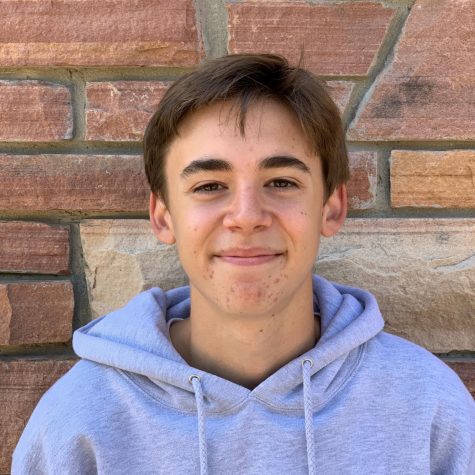
Elijah Boykoff is a senior at Boulder High School. He is an avid soccer player and has been a part of the BHS soccer program for all four years that he has attended Boulder High. Elijah likes to relieve some of the stress of his life as a high school student by walking his Goldendoodle around town and watching soccer games with his Dad. If Elijah is ever able to find free time within his jam-packed schedule, he sits down and immerses himself in some of his favorite Quentin Tarantino films. Elijah has both a passion for writing and a desire to learn more about the world, making The Owl the perfect place for him to satisfy his interests. As a member of The Owl staff when it was an after-school...


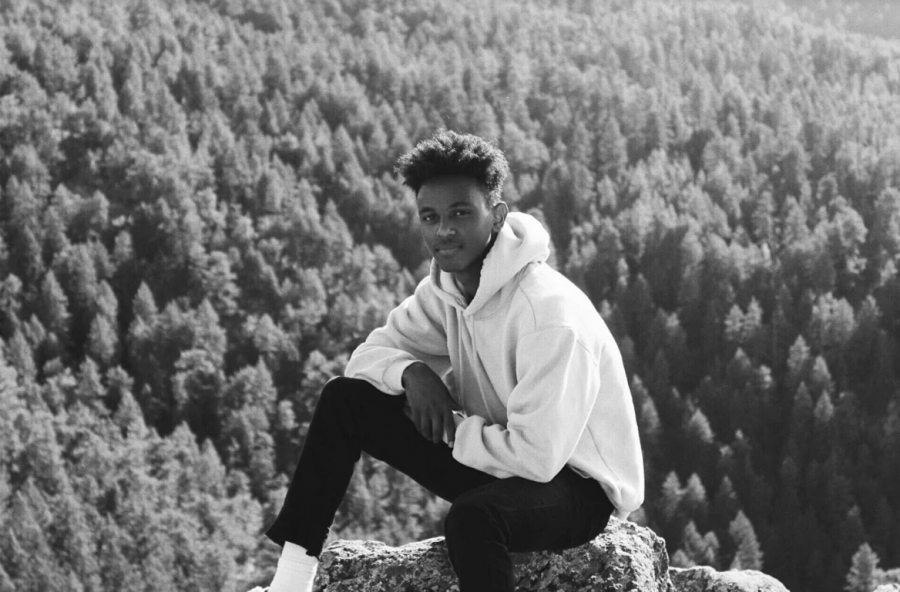
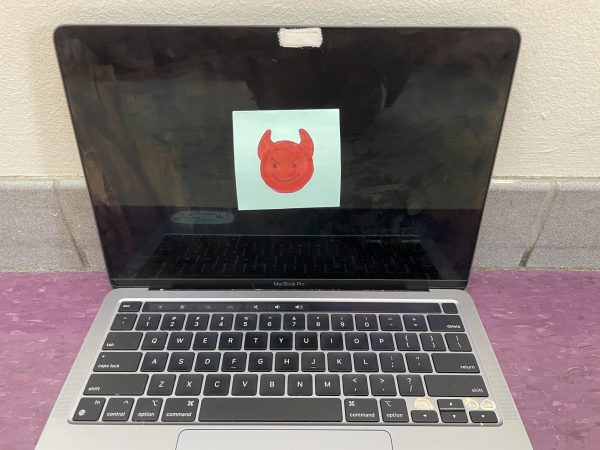
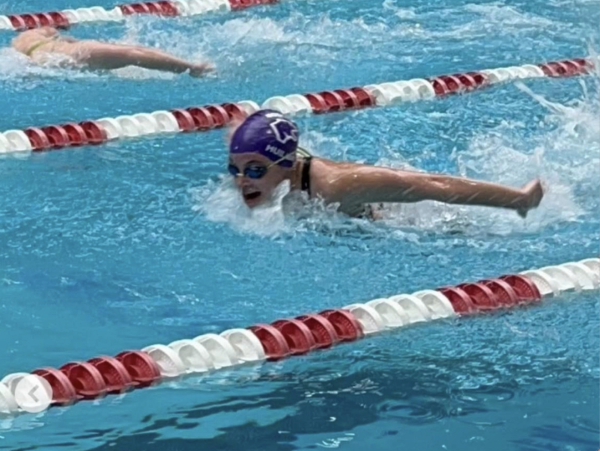
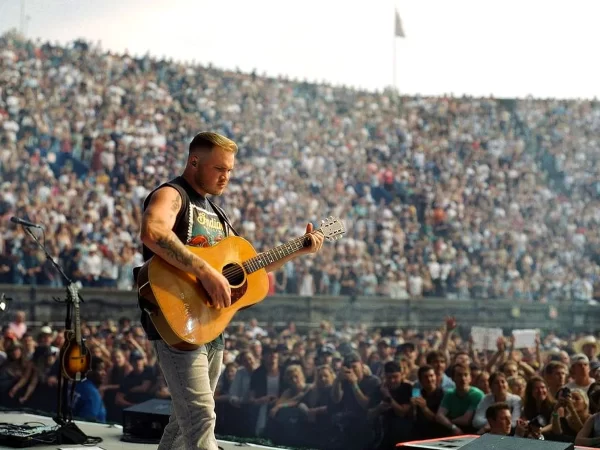
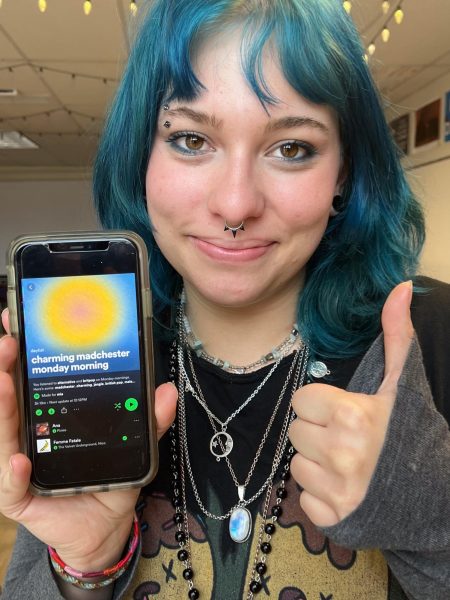
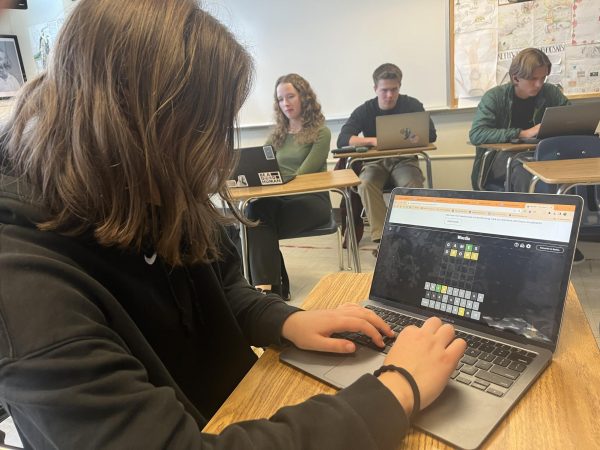
Kifle Ande • Feb 29, 2020 at 11:26 am
I’m so proud of him, after going through all of that with his family and became one of shining young man amazing good luck god bless.
Uncle kifle!!